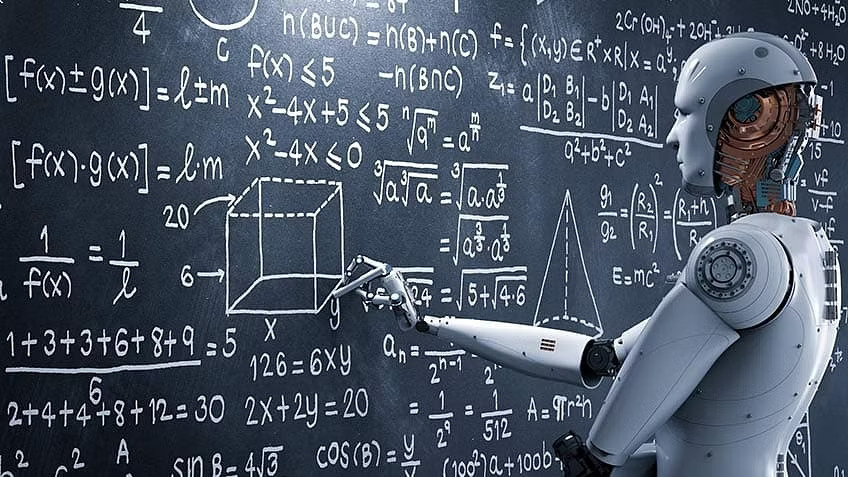Today, Artificial Intelligence (AI) is the face of tech transformation across industries. With this increasing relevance, AI professionals are in great demand. Top employers offer competitive salaries, perks, and excellent facilities for AI talents, making AI-related roles some of the most rewarding tech jobs.
As lucrative as AI jobs are, the interviews to land them are just as challenging. However, with good knowledge and preparation, you can tame the beast of AI interviews.
In this article, we’ll guide you through the most commonly asked Artificial Intelligence interview questions. Whether you’ve just dipped your toes in the field or are a seasoned professional, you’ll find this guide helpful as we cover beginner and advanced-level interview questions. We’ll also talk about how building a good foundation with an online AI ML program can work in your favor.
Top Artificial Intelligence Interview Questions for Beginners
If you are a beginner, you will be asked more fundamental questions regarding AI and ML to test your understanding. Make sure you cover the core concepts of AI. The trick is to answer everything you know with confidence. Let’s look at some of the questions thrown at a beginner.
What is Artificial Intelligence?
Artificial Intelligence (AI) imitates human cognitive processes by machines, particularly computer systems. It involves applications like expert systems, natural language processing, speech recognition, and machine vision. AI is used in a multitude of areas, such as data extraction and data validation.
What are the Programming Languages Used for AI?
Python is the most popular programming language for AI due to its simplicity and robust libraries. Other languages used include R, Julia, Java, and C++.
What is the Difference Between AI, Machine Learning, and Deep Learning?
AI aims to enable machines to think independently. Machine learning involves data processing, learning, and decision-making. In contrast, deep learning employs artificial neural networks to tackle complex problems.
What are the Different Platforms for AI Development?
AI development platforms include Google AI Platform, Microsoft Azure, TensorFlow, Infosys Nia, and others. These platforms provide tools and resources for creating AI solutions.
What is the Future of AI?
The future of AI is focused on machine learning and natural language processing, leading to more sophisticated AI systems. These systems will find applications in various human activities like autonomous vehicles, personal assistants, healthcare, finance, and manufacturing. It is already finding a plethora of applications in business and daily life.
What is Deep Learning?
Deep learning is a subset of machine learning. It utilizes artificial neural networks, particularly deep neural networks with multiple layers. It models and solves complex problems. Deep Learning mimics the human brain’s ability to learn and make decisions, making it well-suited for tasks like image and speech recognition, natural language processing, and more.
What are the Types of AI?
Types of AI include:
- reactive machines
- limited memory systems
- theory of mind systems
- self-aware systems
- narrow AI (ANI)
- artificial general intelligence (AGI).
What are the Misconceptions About AI?
AI is an area rampant with misconceptions. This includes the idea that machines learn independently (they use machine learning), that AI and machine learning are the same (AI is broader), and that AI will overpower humans (its purpose is to complement human intelligence).
List Some Applications of AI.
AI applications include:
- Natural language processing
- Chatbots
- Sentiment analysis
- Sales prediction
- Self-driving cars
- Facial expression recognition
- Image tagging
How are Artificial Intelligence and Machine Learning Related?
Artificial Intelligence is a broader field under which machine learning comes. Machine Learning is a specific approach to AI. Machine learning focuses on algorithms and models learning from data to improve performance.
Top Advanced-Level Artificial Intelligence Interview Questions
If you have some years of experience under your belt, you are likely to be met with more advanced AI interview questions. This will test your experience and familiarity with more in-depth topics. Here are some of them.
What is Q-Learning?
Q-learning is a reinforcement learning algorithm. It is used to find an optimal policy for an agent in an environment. It learns a Q-function that maps states the expected cumulative rewards for taking actions. It helps the agent make decisions.
Which Assessment is Used to Test the Intelligence of a Machine?
One of the tests used to assess machine intelligence is the Turing Test. The Turing test evaluates its ability to mimic human-like responses in natural language conversations. If a machine’s responses are indistinguishable from a human’s, it passes the test.
What is Overfitting?
Overfitting occurs when a model is overly complex and fits training data noise rather than the underlying pattern. It can lead to poor generalization of new data.
Explain Markov’s Decision Process.
Markov Decision Process (MDP) is a mathematical framework for modeling decision-making. It is used in situations involving chance and decision-maker control. MDP defines states, actions, transition probabilities, rewards, and a discount factor.
What is the Difference Between Natural Language Processing and Text Mining?
Natural Language Processing (NLP) and Text Mining analyze human language but differ in scope. NLP deals with language-computer interactions, while Text Mining uses NLP to extract insights from unstructured text.
Explain the Hidden Markov Model.
Hidden Markov Model (HMM) is a statistical model for sequences of observations generated by systems with hidden states. It’s widely used in speech recognition and pattern recognition, modeling how hidden states influence observations.
What is the Difference Between Parametric and Non-parametric Models?
Parametric models have a fixed number of parameters, e.g., linear regression. Non-parametric models adapt their complexity, e.g., k-nearest neighbors. Parametric models require more assumptions, while non-parametric models are more flexible.
What is Reinforcement Learning?
Reinforcement learning (RL) is a type of machine learning. In this type, an agent learns to make decisions through interactions with an environment and feedback in the form of rewards or penalties.
What are the Techniques Used to Avoid Overfitting?
Techniques to avoid overfitting include
- Cross-validation
- Regularization
- Early stopping
- Ensemble methods
- Pruning
- Dropout
- Bayesian approaches
What is Natural Language Processing?
Natural Language Processing (NLP) focuses on interactions between computers and human language, enabling tasks like speech recognition, translation, and sentiment analysis.
Make sure you understand each question and answer them in a way that does justice to your experience. You can also substantiate your answers with real-life examples from your experience. While it’s not necessary, it can fetch you some bonus points.
Scenario-based Artificial Intelligence Interview Questions
Scenario-based AI interview questions are designed to assess your problem-solving skills and practical understanding of AI technology in real-world situations. Each question provides a unique perspective on AI skills. This is an opportunity to demonstrate your readiness for diverse AI challenges.
#1. Imbalanced Data Issue
One common scenario involves dealing with imbalanced data. You’ll be asked how to address this challenge, such as collecting more data for the minority class utilizing alternative metrics like precision or recall. You can also mention employing techniques like the Synthetic Minority Over-sampling Technique (SMOTE) for class balance.
#2. Predictive Model
Building a predictive model is a key AI task. You might be tasked with creating a predictive model. This includes steps like:
- Gathering historical sales data for an e-commerce platform.
- Cleaning data.
- Selecting relevant features.
- Choosing an appropriate model (e.g., linear regression).
- Training.
- Cross-validating.
- Testing.
- Evaluating the model’s performance.
- Deployment for real-time sales predictions.
#3. Overfitting Problem
AI interviewers often assess your ability to recognize and address overfitting issues. Strategies to tackle overfitting include simplifying the model, incorporating more data, and applying techniques like cross-validation.
#4. Machine Learning Model
Imagine you have a machine learning model with high accuracy but low AUC (Area Under the Curve). You’ll need to identify potential problems, such as class bias, inappropriate metrics, or overfitting, and propose solutions like using different evaluation metrics, balancing the dataset, or simplifying the model.
#5. Identifying Peak Points
In this scenario, you’ll delve into identifying peak points in data. Techniques like moving averages and recognizing transition points from rising to falling curves will be explored.
Besides these, you should practice and explore additional artificial intelligence interview questions to boost your confidence and readiness.
Tips to Prepare for AI Interviews
Before you go for an interview, it is natural to be tense. But don’t let it hinder you from showing yourself in the best light. Here are some tips to help you give a stunning interview that will help you land your job.
- Learn beyond just theory. AI interviews demand practical experience and problem-solving skills, not just bookish knowledge.
- Make practice your best friend. Regular practice is essential to strengthen your AI skills and problem-solving abilities.
- Know the nuances of code. Practice helps you understand the intricacies of coding and algorithms, enabling better optimization.
- Interviews often have time constraints; practice enhances your problem-solving speed. Take help from a friend to practice answers.
The bottom line is that you can achieve interview success by combining knowledge with practical skills and dedicated practice.
How Certifications Can Help You Crush AI Job Interviews
Before you look for a job opportunity, you need a resume that brings in interview calls. A strong foundation in the form of a degree in the relevant field, experience, and certifications is a great way to secure it.
While certifications were once an unconventional way of getting academic merit, times have changed. Here is why it is the most critical aspect of merit in the tech world.
- Practical Investment: IT certifications offer a quick, cost-effective way to invest in your career, suitable for students, career starters, and changers.
- Resume Enhancement: Certifications and work experience complement each other. If you have employment gaps, then a certification shows that you have knowledge and a thirst for lifelong learning.
- Industry Expertise: Standardized exams and certifications are valuable tools to demonstrate competence. They also show that you’re keeping pace with rapidly evolving tech.
- Hiring Entry-level Talent: Certifications become crucial for assessing candidates with limited experience. When there is no experience to vouch for you, a certification speaks volumes.
- Employer Confidence: Certifications offer third-party verification, boosting employer confidence in your abilities and reducing hiring risks.
- Higher Earning Potential: AI professionals often command higher salaries, and certifications can boost an AI candidate’s earning potential in this competitive field.
Investing in IT certifications can be a game-changer for you. With a bootcamp, you can expect career advancement, better job prospects, and higher earnings.
Get Industry Ready With Our Bootcamp
AI is one of the most dynamic sectors of the tech world and offers opportunities to those from both tech and non-tech backgrounds. However, to make it big in the industry, you need more than just what the conventional education system can offer you. Make yourself primed for high-paying jobs with our online AI ML bootcamp.
Our AI and Machine Learning Bootcamp offers professionals a comprehensive learning experience. This bootcamp has a curriculum covering key topics, hands-on projects, and guidance from industry experts. We ensure you get practical skills and knowledge. The program provides career support, including access to an exclusive job portal, ensuring graduates are job-ready. Plus, our prestigious certificate validates your expertise, making this bootcamp a stepping stone for a successful career in AI.
Enroll today to get started!







